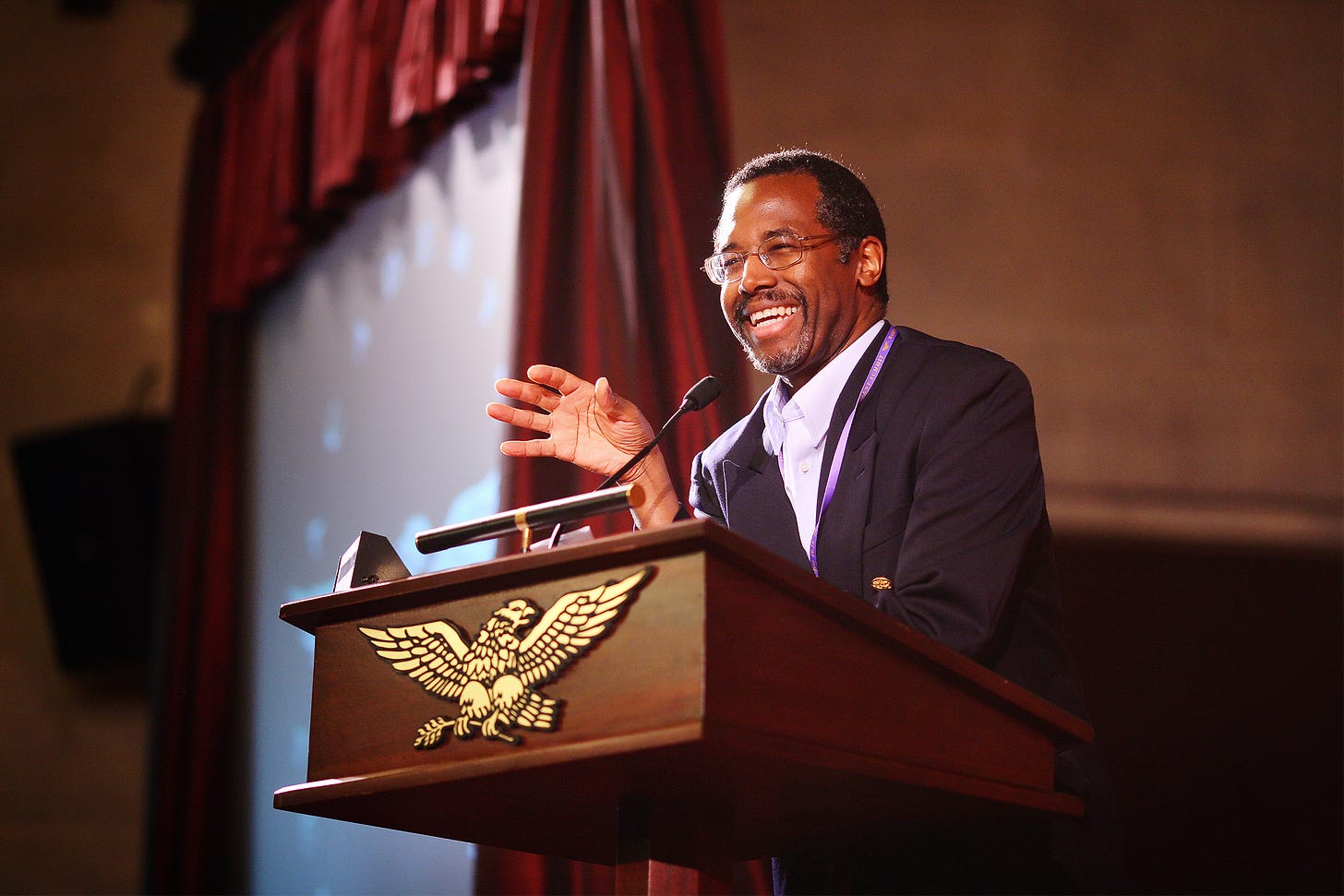Evidence suggests reading enjoyment is more important for children’s educational success than their family’s socio-economic status.1
This is, frankly, awesome: enjoying books can give children a better chance of success in life.
Nowhere is this better evidenced than with Benjamin Carson, whose life is about as close to the American Dream as I’ve ever heard.
Benjamin grew up with his brother and single-mum, Sonya, in Detroit in the 1950s. As mum held down multiple jobs to provide for the family, the boys fell behind at school — Ben was nicknamed ‘dummy’ by classmates, developing a violent temper to compensate.
Eventually, Sonya decided enough was enough, and brought in a new, strict regime:
Minimal TV
No play outside until homework was finished
Each boy must read two library books per week.
(She had them write reports on what they had read, though her reading was so poor she secretly didn’t understand much of what they had put.)
Long story short, it worked. Ben discovered new confidence as the books he read brought him up the ranks at school until he was top of the class. He was hungry for knowledge and read voraciously, meanwhile learning to control his temper.
He dreamt of becoming a doctor, and after high school went on to graduate from Yale University, and then the Medical School of the University of Michigan following that. Furthermore, he became a neurosurgery resident at the renowned Johns Hopkins Hospital in Baltimore, and at 32, became Director of Paediatric Neurosurgery, a position he would hold for the next 29 years.
That would seem like enough, I think you’ll agree. But wait, there’s more…
Doctor Benjamin Carson (formerly known as ‘dummy’ if you remember) made medical history by leading the 70-member surgical team that first successfully separated a pair of Siamese twins — the Binder twins — who were joined at the back of the head.
Dr. Carson was awarded the Presidential Medal of Freedom, America’s highest civilian honour, in 2008.
In his motivational book ‘Think Big’, Ben writes:
“Knowledge: It makes you into a more valuable person. The more knowledge you have, the more people need you. It’s an interesting phenomenon, but when people need you, they pay you, so you’ll be okay in life.
Books: They are the mechanism for obtaining knowledge, as opposed to television.”2
Books are the mechanism for obtaining knowledge. I rest my case.
Organisation for Economic Co-operation and Development (OECD), 2002
Ben Carson, Think Big


